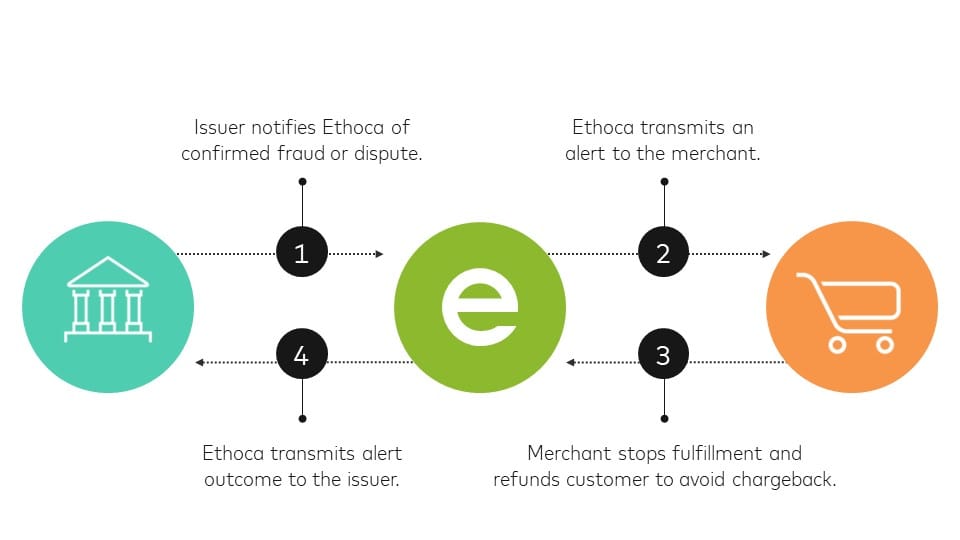
SuperPay helps automotive repair professionals like yourself get paid as quickly as possible. Choose our platform to power your payments & billing.
Welcome to our blog post on attracting fleet contracts in the auto repair industry. If you own an auto repair business and want to expand your client base, securing fleet contracts can be a game-changer. Serving fleet vehicles not only provides a consistent stream of business but also offers opportunities for growth and stability.
In this blog post, we will explore the basics of fleet contracts and their importance in the auto repair industry. We will discuss how you can establish your business as a viable option for fleet managers by highlighting your expertise and specializations, building a strong reputation, and investing in quality equipment and technology.
Furthermore, we will dive into the crucial aspect of marketing your business to fleet managers. We will guide you through identifying potential fleet contract opportunities, crafting a compelling value proposition, and utilizing effective marketing channels to showcase your services.
Once you have captured the attention of fleet managers, we will provide insights into the negotiation and contracting process. Understanding the contracting process, implementing successful negotiation strategies, and fulfilling contract requirements will be key topics discussed in this section.
Lastly, we will focus on maintaining and growing your fleet contracts. Delivering consistent quality service, building strong relationships with fleet managers, and exploring opportunities for contract expansion will be highlighted as essential in maintaining a successful fleet contract.
Whether you are just starting out or looking to expand your auto repair business, attracting fleet contracts can significantly impact your success. So, let's delve into the world of fleet contracts and discover how you can position your business as the go-to option for fleet managers.
Understanding Fleet Contracts: Basics and Importance
Fleet contracts are agreements between an auto repair business and a company or organization that owns a fleet of vehicles. These contracts outline the terms and conditions under which the auto repair business will provide maintenance and repair services for the fleet vehicles.
What are Fleet Contracts?
Fleet contracts are a mutually beneficial arrangement where auto repair businesses gain a consistent and reliable source of income, while fleet owners ensure the proper maintenance and repair of their vehicles. These contracts can range from short-term agreements to long-term partnerships, depending on the specific needs and preferences of the fleet owner.
Importance of Fleet Contracts
Securing fleet contracts can bring numerous benefits to an auto repair business. Here are some key reasons why fleet contracts are important:
1. Consistent and Predictable Revenue
Fleet contracts provide a steady flow of business, ensuring a consistent revenue stream for the auto repair shop. Unlike individual customers who may come sporadically, fleet contracts offer a more dependable income source.
2. Increased Workload and Efficiency
By serving fleet vehicles, auto repair businesses can experience an increase in workload. With a higher volume of vehicles to service, the business can optimize its operations, improve efficiency, and achieve economies of scale.
3. Building Long-Term Relationships
Fleet contracts often involve long-term commitments, allowing auto repair businesses to build strong relationships with fleet owners. These relationships can lead to repeat business, referrals, and potential expansion of the contract scope.
4. Enhanced Reputation and Credibility
Securing fleet contracts can elevate the reputation and credibility of an auto repair business. Working with well-known fleet owners or organizations can enhance the business's image and attract more customers, both fleet and individual vehicle owners.
5. Opportunities for Growth and Expansion
Fleet contracts provide opportunities for growth and expansion. As the fleet owner's needs evolve, the auto repair business can adapt its services and expand its capabilities to accommodate additional vehicles or specialized requirements.
Understanding the basics and importance of fleet contracts sets the foundation for attracting and securing these contracts. In the following sections, we will explore strategies to establish your auto repair business as a preferred option for fleet owners and delve into the intricacies of marketing, negotiating, and maintaining these contracts for long-term success.
Establishing Your Auto Repair Business as a Viable Option
To attract fleet contracts in the auto repair industry, it is essential to establish your business as a viable option for fleet managers. This section will focus on strategies to highlight your expertise and specializations, build a strong reputation, and invest in quality equipment and technology.
Highlighting Your Expertise and Specializations
One of the first steps in attracting fleet contracts is to showcase your expertise and specializations in auto repair. Fleet managers want to work with businesses that have a deep understanding of their specific needs and can provide reliable and efficient services. Here are some ways to highlight your expertise:
Identify your niche: Determine the specific areas of auto repair that your business excels in. Whether it's engine diagnostics, electrical systems, or specialized vehicle types, focus on showcasing your expertise in these areas.
Certifications and training: Obtain relevant certifications and ensure that your technicians receive ongoing training in the latest automotive technologies and repair techniques. Display these certifications prominently on your website and in your marketing materials.
Case studies and success stories: Share case studies and success stories that demonstrate your ability to effectively repair and maintain fleet vehicles. Highlight any challenges you have successfully overcome and the positive outcomes achieved.
Client testimonials: Request testimonials from satisfied fleet clients and feature them on your website and social media platforms. Positive feedback from other fleet managers can significantly enhance your credibility.
Building a Strong Reputation
A strong reputation is vital in attracting fleet contracts. Fleet managers need to trust that your business can consistently deliver high-quality service. Consider the following strategies to build and maintain a reputable image:
Consistency and reliability: Ensure that your business consistently delivers excellent service. Meet deadlines, communicate effectively with fleet managers, and provide accurate cost estimates.
Quality control measures: Implement rigorous quality control measures to ensure that repairs are done correctly the first time. Conduct thorough inspections and tests to identify and address any potential issues.
Warranty and guarantees: Offer warranties and guarantees on your repairs to provide peace of mind to fleet managers. Clear and transparent warranty policies can instill confidence in your workmanship.
Online presence and reviews: Manage your online presence by maintaining an informative and user-friendly website. Encourage satisfied customers to leave positive reviews on platforms like Google My Business or industry-specific directories.
Investing in Quality Equipment and Technology
Investing in quality equipment and technology is crucial to attract fleet contracts. Fleet managers seek repair shops that have the necessary tools and technology to handle their vehicles efficiently. Consider the following steps:
Upgraded diagnostic tools: Stay up-to-date with the latest diagnostic tools and equipment. This allows for accurate and efficient diagnosis of vehicle issues, leading to faster repairs.
Specialty equipment: If you specialize in servicing specific types of vehicles, invest in specialty equipment tailored to those vehicle models. This demonstrates your commitment to providing specialized services.
Maintenance and repair software: Utilize maintenance and repair software to streamline your operations. These software solutions help manage work orders, track vehicle history, and facilitate efficient communication with fleet managers.
Environmental considerations: Consider investing in environmentally friendly equipment and practices. This can be attractive to fleet managers who prioritize sustainability and corporate social responsibility.
By highlighting your expertise and specializations, building a strong reputation, and investing in quality equipment and technology, you can position your auto repair business as a viable option for fleet managers. In the next section, we will explore effective strategies for marketing your business to attract fleet contracts.

Marketing Your Business to Fleet Managers
Once you have established your auto repair business as a viable option for fleet managers, the next step is to effectively market your services to attract fleet contracts. In this section, we will delve into strategies for identifying potential fleet contract opportunities, crafting a compelling value proposition, and utilizing effective marketing channels.
Identifying Potential Fleet Contract Opportunities
To effectively market your business to fleet managers, you need to identify potential opportunities where your services can be of value. Consider the following approaches:
Research local businesses and organizations: Identify companies and organizations in your area that operate fleets of vehicles. This can include delivery services, transportation companies, government entities, and private corporations.
Networking: Attend industry events, join business associations, and participate in local networking groups to connect with fleet managers. Building relationships and staying connected with industry professionals can lead to potential fleet contract opportunities.
Collaborate with fleet management companies: Partnering with fleet management companies can provide access to a broader range of potential fleet contracts. These companies specialize in managing and maintaining fleets for other businesses and can help connect you with fleet managers.
Crafting a Compelling Value Proposition
A compelling value proposition is crucial in attracting fleet contracts. It highlights the unique benefits and advantages that your auto repair business offers to fleet managers. Consider the following elements when crafting your value proposition:
Cost savings: Emphasize how your services can help fleet managers save money through efficient repairs, preventive maintenance, and minimized downtime for their vehicles.
Quick turnaround time: Highlight your ability to provide fast and efficient repairs, minimizing the time fleet vehicles spend off the road.
Customized solutions: Showcase your ability to tailor your services to meet the specific needs of fleet managers. Whether it's flexible scheduling, specialized equipment, or customized maintenance plans, demonstrate your willingness to adapt to their requirements.
Quality and reliability: Emphasize your commitment to delivering high-quality repairs and maintenance services. Highlight any industry certifications or awards that showcase your expertise and dedication to excellence.
Utilizing Effective Marketing Channels
To reach fleet managers effectively, utilize various marketing channels to promote your business. Consider the following strategies:
Professional website: Ensure that your website is user-friendly, informative, and showcases your expertise and services. Include a dedicated page highlighting your fleet services and provide a clear call-to-action to contact you for more information.
Search engine optimization (SEO): Optimize your website with relevant keywords and content to improve its visibility in search engine results. This will increase the chances of fleet managers finding your business when searching for auto repair services.
Social media presence: Establish a presence on social media platforms such as LinkedIn and Facebook. Share industry news, success stories, and valuable content that positions your business as an authority in the field.
Email marketing: Develop an email marketing strategy to stay connected with fleet managers. Share updates, promotions, and educational content that demonstrates your expertise and keeps your business top of mind.
Direct mail campaigns: Consider targeted direct mail campaigns to reach fleet managers. Send well-crafted brochures or postcards that highlight your value proposition and encourage them to reach out for more information.
By identifying potential fleet contract opportunities, crafting a compelling value proposition, and utilizing effective marketing channels, you can effectively market your business to attract fleet contracts. In the next section, we will explore the intricacies of negotiating and securing fleet contracts.
Negotiating and Securing Fleet Contracts
Negotiating and securing fleet contracts is a critical step in the process of attracting fleet contracts. In this section, we will discuss the contracting process, tips for successful negotiation, and fulfilling contract requirements.
Understanding the Contracting Process
Before diving into negotiations, it is crucial to understand the contracting process for fleet contracts. Consider the following key steps:
Request for Proposal (RFP): Some fleet managers may issue an RFP to solicit bids from auto repair businesses. The RFP typically outlines the scope of work, contract duration, evaluation criteria, and submission requirements.
Preparation and submission of the proposal: Review the RFP carefully and prepare a comprehensive proposal that addresses the requirements and specifications. Ensure that your proposal highlights your expertise, competitive pricing, and value-added services.
Evaluation and selection: Fleet managers will evaluate the submitted proposals based on various criteria, such as pricing, experience, qualifications, and references. They will select the most suitable candidate(s) for further negotiations.
Negotiation: Once you are shortlisted, negotiations will begin to finalize the terms and conditions of the contract. This includes pricing, payment terms, service level agreements, performance metrics, and any additional requirements.
Contract execution: After reaching an agreement, the contract will be drafted and signed by both parties. It is crucial to review the contract carefully to ensure that all agreed-upon terms are accurately reflected.
Tips for Successful Negotiation
Negotiating fleet contracts requires effective communication and a strategic approach. Consider the following tips to increase your chances of successful negotiation:
Research and preparation: Thoroughly research the fleet manager's needs, preferences, and industry trends. Prepare a well-informed negotiation strategy and be aware of your business's strengths and unique selling points.
Establish clear objectives: Define your objectives before entering negotiations. Determine your desired pricing, contract terms, and any specific requirements you need to meet. Be prepared to compromise but also know your limits.
Focus on value: Shift the conversation from price alone to the value your business brings to the table. Emphasize the quality of your services, efficiency, and the potential cost savings your expertise can provide.
Be flexible and adaptable: Demonstrate your willingness to adapt to the fleet manager's requirements. Offer flexible scheduling, tailored maintenance plans, and any additional services that can add value to the contract.
Build rapport and trust: Establishing a good rapport with the fleet manager can positively influence the negotiation process. Listen actively, be responsive to their concerns, and demonstrate your commitment to their fleet's success.
Fulfilling Contract Requirements
Once the negotiations are successfully concluded, it is crucial to fulfill the contract requirements to maintain a positive relationship with the fleet manager. Consider the following:
Adhere to service level agreements: Ensure that you meet or exceed the agreed-upon service level agreements, including response times, repair turnaround times, and quality standards.
Maintain open communication: Stay in regular communication with the fleet manager to address any concerns, provide updates, and seek feedback on your services. Promptly address any issues that may arise.
Track and report performance metrics: Establish a system to track and report key performance indicators (KPIs) outlined in the contract. This helps demonstrate your commitment to transparency and accountability.
Review and adapt: Regularly review the contract's effectiveness and solicit feedback from the fleet manager. Be open to making necessary adjustments or improvements to better align with their evolving needs.
By understanding the contracting process, employing successful negotiation strategies, and fulfilling contract requirements, you can secure fleet contracts and establish long-term partnerships. In the next section, we will explore how to maintain and grow your fleet contracts for continued success.
Maintaining and Growing Your Fleet Contracts
Maintaining and growing your fleet contracts is essential for long-term success in the auto repair industry. In this final section, we will discuss strategies for delivering consistent quality service, building strong relationships with fleet managers, and exploring opportunities for contract expansion.
Delivering Consistent Quality Service
Consistency is key when it comes to maintaining fleet contracts. Fleet managers rely on your business to provide reliable and high-quality service for their vehicles. Consider the following strategies:
Efficient scheduling and turnaround times: Optimize your operations to ensure efficient scheduling and quick turnaround times for repairs and maintenance. Minimize vehicle downtime to keep the fleet manager satisfied.
Proactive maintenance planning: Implement proactive maintenance programs to help prevent unexpected breakdowns and costly repairs. Develop customized maintenance plans tailored to each fleet's specific needs.
Regular training and skill development: Invest in ongoing training for your technicians to keep them up to date with the latest automotive technologies and repair techniques. This ensures that they can handle any challenges that arise.
Continuous improvement: Regularly evaluate and improve your processes, systems, and quality control measures. Seek feedback from fleet managers and implement their suggestions to enhance your services.
Building Strong Relationships with Fleet Managers
Building strong relationships with fleet managers is crucial for maintaining and growing your fleet contracts. Consider the following strategies to foster strong relationships:
Effective communication: Maintain open lines of communication with fleet managers. Keep them informed about repairs, provide progress updates, and promptly address any concerns or issues that arise.
Regular meetings and reviews: Schedule regular meetings to discuss contract performance, address fleet manager feedback, and identify areas for improvement. Use these meetings as an opportunity to strengthen the relationship.
Exceptional customer service: Provide exceptional customer service to fleet managers. Be responsive, attentive, and go above and beyond to meet their needs. Show that you value their business and are committed to their fleet's success.
Value-added services: Identify additional services that can add value to your relationship with fleet managers. This could include providing detailed maintenance reports, offering fleet management software integration, or providing cost-saving recommendations.
Exploring Opportunities for Contract Expansion
While maintaining existing fleet contracts is essential, it is also important to explore opportunities for contract expansion. Consider the following strategies to grow your fleet contracts:
Proactively identify fleet needs: Stay informed about industry trends and changes in fleet management requirements. Anticipate the evolving needs of fleet managers and proactively offer solutions to meet those needs.
Upselling and cross-selling: Identify opportunities to upsell or cross-sell additional services to fleet managers. This could include offering additional maintenance packages, specialized repairs, or fleet management consulting services.
Request referrals and recommendations: Satisfied fleet managers can be great advocates for your business. Ask for referrals or recommendations from your existing fleet clients to expand your network and attract new fleet contracts.
Participate in industry events: Attend industry conferences, trade shows, and networking events to connect with potential fleet managers. These events provide valuable opportunities to showcase your services and forge new partnerships.
By delivering consistent quality service, building strong relationships with fleet managers, and exploring opportunities for contract expansion, you can ensure the long-term success and growth of your fleet contracts. With these strategies in place, your auto repair business will be well-positioned to thrive in the competitive fleet market.


